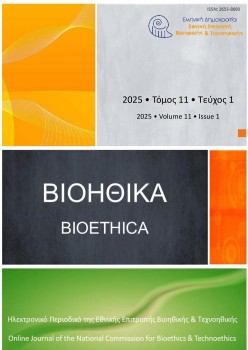Insects in Scientific Research: A Philosophical Examination through the Lens of the 3Rs
Аннотация
This essay examines the ethical implications of using insects in scientific research through the framework of the 3Rs—Replacement, Reduction, and Refinement. Historically, ethical considerations in research have focused on vertebrates, but increasing evidence suggests that insects may possess more complex cognitive and sensory capacities than previously thought, raising moral questions about their treatment.
The principle of Replacement is discussed in relation to alternative methods such as in silico models, in vitro systems, and biomimetics, which offer promising ways to reduce the reliance on live insects. However, these alternatives are not yet advanced enough to fully replicate the complexity of biological processes in insects. Reduction, which aims to minimize the number of animals used in research, requires more precise statistical techniques and better experimental design to balance ethical concerns with scientific rigor. Finally, Refinement emphasizes minimizing suffering and improving welfare, including the use of anesthesia and appropriate euthanasia techniques, although research into insect welfare and euthanasia methods remains limited.
Through an analysis of utilitarianism, deontological ethics, and virtue ethics, this essay argues that ethical considerations must extend to insects. Despite their differences from vertebrates, the 3Rs should guide insect research to reduce harm and promote responsible scientific inquiry.
Article Details
- Как цитировать
-
Tsikas, A. (2025). Insects in Scientific Research: A Philosophical Examination through the Lens of the 3Rs. Bioethica, 11(1), 21–34. https://doi.org/10.12681/bioeth.40929
- Выпуск
- Том 11 № 1 (2025): Bioethica
- Раздел
- Original Articles

Это произведение доступно по лицензии Creative Commons «Attribution» («Атрибуция») 4.0 Всемирная.
Authors who publish with this journal agree to the following terms:
- Authors retain copyright and grant the journal right of first publication with the work simultaneously licensed under a Creative Commons Attribution CC BY 4.0 License, which allows for immediate free access to the work and permits any user to read, download, copy, distribute, print, search, or link to the full texts of articles, crawl them for indexing, pass them as data to software, or use them for any other lawful purpose. Appropriate credit must be given by citing the author(s) and the original publication in this journal.
- Authors are able to enter into separate, additional contractual arrangements for the non-exclusive distribution of the journal's published version of the work (e.g. post it to an institutional repository or publish it in a book), with an acknowledgement of its initial publication in this journal.
We encourage authors to deposit their articles, as well as data underlying the publications, in institutional and/or other appropriate subject repositories.
Bioethica permits and encourages authors to archive the final publication pdf in institutional (e.g. the repository of the National Hellenic Research Foundation) or other appropriate subject repositories (e.g. SSOAR repository for social sciences), in compliance with institutional and/or funder open access policies, after publication in the BIOETHICA. Authors must provide bibliographic details that credit publication in the journal, as well as related funding details (when applicable).
Lists of institutional and other subject-based academic open access repositories can be found listed by country at the registry http://opendoar.org/countrylist.php
If your institution does not possess a repository you may deposit a copy of your paper at no cost with www.zenodo.org , the repository supported for open access research in the EU by the European Commission, through the project OpenAIRE (www.openaire.eu )



